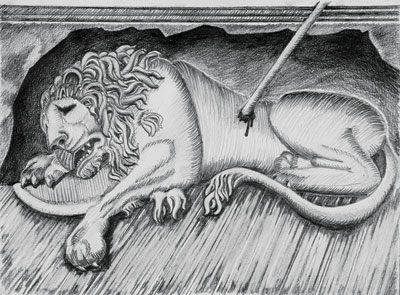All Nonfiction
- Bullying
- Books
- Academic
- Author Interviews
- Celebrity interviews
- College Articles
- College Essays
- Educator of the Year
- Heroes
- Interviews
- Memoir
- Personal Experience
- Sports
- Travel & Culture
All Opinions
- Bullying
- Current Events / Politics
- Discrimination
- Drugs / Alcohol / Smoking
- Entertainment / Celebrities
- Environment
- Love / Relationships
- Movies / Music / TV
- Pop Culture / Trends
- School / College
- Social Issues / Civics
- Spirituality / Religion
- Sports / Hobbies
All Hot Topics
- Bullying
- Community Service
- Environment
- Health
- Letters to the Editor
- Pride & Prejudice
- What Matters
- Back
Summer Guide
- Program Links
- Program Reviews
- Back
College Guide
- College Links
- College Reviews
- College Essays
- College Articles
- Back
Witness of War
The Civil War brought changes, to that affected lives of soldiers, civilians and African Americans. The war did not just change lives for those who were on the the battle line fighting, but those who were behind the lines as well. Though both sides were affected by the war, the wartime experience of the Union and the Confederate were different.
The war brought many changes to the African Americans. Especially after the Emancipation Proclamation was signed by Lincoln which declared freedom of enslaved persons in rebel states. It was a huge impact on the enslaved African Americans living in the Confederacy states. Some even rebelled against their owners and freed themselves, and some even joined the Union army. The enslaved African American in the Union slave states rejoiced at the declaration of the proclamation too. To them, although they were not freed by the proclamation, it indicated that slavery will end in the future if the Union wins the war. The civil war changed the lives of enslaved African American to the hope of finally becoming free.
The life on the battlefield was difficult and rough. The army were always low on supplies and soldiers. Using new military technology with old fighting strategy created high casualty.( Poem by resident of Richmond, Virginia Doc.4) (Poem by a resident of Massachusetts Doc.5) Soldiers often had to march long ways without rest, suffer in the cold without warm clothes, were weak and hungry without proper nutritious food. Once the firing started, soldiers of both sides experience high casualty. People then did not realized the importance of sanitizing the medical equipments, so an equipment would be used and left uncleaned until he next time of use. Bacterias grew on them and more soldiers died of infection than of the actual fighting. Those who were captured by the enemy side suffered even more. They were put into prisoner camper and was executed, starved, and infected by various diseases because of the poor conditions in the camps. (Confederate soldier in military prison Doc.1) Both sides they fought for their beliefs voluntary and dedicated their lives. The Confederate soldier fought for what they believed to be their rights and liberty, and for state sovereignty ( Poem by Richmond, Virginia. Doc.4) The Union soldiers, on the other hand, fought for the preservation of the Union ( Lincoln's Gettysburg Address. Doc.3)
When the soldiers of both sides were fighting for their beliefs, the fighting for surviving did not end there. Back home, civilians such as women, children, elderly, and others strived to survive the difficult living conditions. Many women while waiting for their loved ones to come home picked up new roles. The army of both sides were in desperate need of supplies, so many women took on the responsibilities of supplying them goods. Besides the army, many women started to manage family farms, worked in factories, and filled in government positions to support their families. Some even disguised as man to fight in the war while volunteered as nurses and cooks in the army. As the battle dragged on, in need of funds and soldiers to fight, both sides issued a draft which was a required military service avoided by paying a certain amount of money. This act angered the poor whom created protests and riots.
Homelessness and hunger were severe in the south. The south had been growing economical crops such as cotton, so when the wartime came, they did not have as much food crops as the north had. The Union army had started the “scorch earth policy” ever since Grant took command. The Union army marched through the southern territories, destroying anything beneficial to the south on their way. The destruction of the railroad deteriorated the southern economy even more, it cut down the southern supply line, making the southern residents' lacking of basic supplies even more severe.( The destroyed railroad engine in Richmond, Virginia. Doc.6) As a result, many women looted stores, hijacked trains, and attacked Confederate supply depots to get bread and other food. The Union army reached Atlanta, Georgia and destroyed the city. This was considered a great victory to the North, but to many civilians in the South, it was suffering of many and lost of lives. ( Diary of Carrie Berry from Atlanta. Doc.2)
The war was not easy for America, whether the slaves, soldiers, and civilians of both South and North. They witnessed death of many, suffered through diseases, hunger and homelessness. People would always remember how they devoted themselves and what they had survived through. Together they brought the birth of new country of freedom.

Similar Articles
JOIN THE DISCUSSION
This article has 0 comments.
